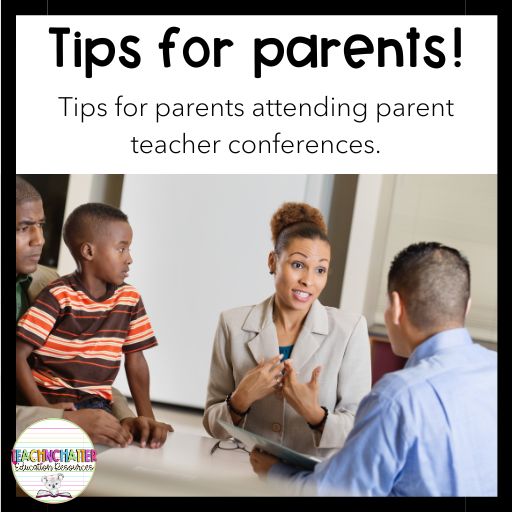tips-for-parents-for-parent-teacher-conferences
Sometimes it can be challenging wearing a teacher hat and a parent hat at the same time. I do this with relative ease in my own classroom. I treat students as I feel is best in a general sense (duty of care, wellbeing and so forth) but also how I would wish my children to be treated. But now, you may ask, how do I deal with teachers who educate my children? I will share some of my tips and approach this as if you are a parent and also a teacher/parent.
Tips for a parent (who is not a teacher):
1 – Purpose of meeting – before the meeting, think of what you want to achieve from having the meeting. My husband and I discussed this before we walked through the door. We wanted this information:
- How can we find out what is due and when? Even if our child says nothing is due…
- What can we do to help our child? e.g. what is the help that he needs?
Knowing this, helped us stay on track and focus on the task at hand. We were clear when we asked the question and restated the answer back to ensure we heard correctly.
2 – Listen first – this may be challenging when you have your ideas and want to say them with desperation. Don’t. Listen first to what the teacher says. You are not in the classroom to see what else the teacher may be dealing with or how your child is behaving or working in the classroom.
3 – Ask questions – ask the teacher what is required specifically. Does your child need additional resources, a referral to a specialist, tutoring and so forth? If you do not understand what the teacher has said (e.g. they are using “teacher language”) then ask.
4 – Be polite – keep your feelings aside and focus on what you need out of the meeting. Demonstrating basic manners is essential. No one wants to be disrespected, regardless of where they are and what their job is. You do not have to be rude, say mean comments, say passive-aggressive comments or comment on matters not about the welfare of your child. You are in the meeting to discuss the wellbeing of your child so keep it professional and focused. If this is too difficult for you then do this… write down in dot points what you would like to have discussed and read from your list. Alternatively, ask an administrator to mediate the meeting if you require help.
5 – Seek clarification – at the end of the meeting, state the actions that need to be taken and when they will be taken by (and by whom). This gives you, and the teacher, a chance to clarify what was discussed.
6 – Thank the teacher – even if you didn’t get all of your answers or matters resolved in this one meeting, thank them. No doubt, they will have worked overtime to meet with you. They probably have their own family or life situations to be dealing with too.
7 – Frequency – unless your child has significant health/psychological issues (and even then, you can arrange to have dialogue seamlessly), do not send an email on a daily/weekly basis and arrange to have meetings the minute your child mentions something, you see something or you hear something. Why? The teacher of your child will find this potentially “nagging” and may turn off their attention to your concerns. They will just think, here we go again. Another email. Another meeting. Especially if they know there is nothing wrong, they have no concerns and you are bringing up minor issues that are not warranted in a meeting or email.
With my teacher hat on here, your child may give you a “misrepresentation” of what is a reality in their class! Trust me, I have heard some of the comments that students make of their parents. If I believed absolutely every comment, I’d find it hard to look at some parents. Just think of all of the private home activities that occur and your child shares them (yes, those “fart” jokes and more…).
My child said they don’t do homework in maths. So, you know, some children will stretch the truth sometimes. Of course, I am definitely NOT suggesting you do not believe your child either. Let your child talk openly and freely. Take a mental note of what your child has said. Decide for yourself if it is important, ongoing, or affecting your child’s wellbeing and academic progress before you arrange a meeting or send an email.
Something else to consider…
1 – You may not always get what you want in the meeting. Why? Well, there may be situations going on in the classroom that affect the way the classroom is set up, the content that is delivered and programs offered. The “situations” may include other student needs (such as psychological, physical and academic needs), administration requirements, administrator inputs and department policies. So, sometimes, a teacher may agree that the action you wish to occur should happen! But, due to department regulations, other student needs or administrator “inputs” they may not be able to accommodate your wishes. A teacher will not always be able to even verbally state that they agree with you for a variety of reasons. This comment here is just something for you to consider but it is also very valid and relevant! Teachers want you to know this but they cannot tell you such things.
2 – Same team. Remember, you want to be on the SAME team as your teacher and school. When you are, it is wonderful. I know this may be challenging but try to avoid playing on competing teams and viewing it in your own head as “you” vs “us.” It won’t help at all. Trust me, most of the time, your teacher will want to get along with you and have a harmonious relationship. They want to be safe telling you important things too!
Now, what about all of the teachers meeting the teachers of their children? You’d think it would all be swimmingly well wouldn’t’ you? Well, the truth is, some teachers can probably have exceedingly high expectations for the teachers of their own children. Dare I say this… some teachers may have higher expectations for the teachers of their own children than what they do in their own classroom. Boom! This is NOT always the case though.
Where do I stand? I think I am pretty “cruisy” as a parent/teacher. I want my children to be respected, safe and educated. I can pick up some of the pieces if it’s not perfect in their class. I don’t expect it to be perfect. I say to my children that some years will be better than others. It is what it is. That’s life. Here are my tips for teachers…
Tips for a teacher:
When you are having a meeting (or communicating via email) with a teacher of your child, ideally, I think you should follow the previously mentioned tips. You are communicating primarily as a parent. This is your role right now. You are the parent in this meeting. Unless you are home-schooling your child, you are the parent and not the teacher in your child’s classroom.
I recently had a parent-teacher meeting to discuss the academic progress of my child. Here’s how it went… The teacher said my child’s name about three times, rolled his eyes and let out a sigh and then silence. Hmmmm, so we were not off to a good start. What did I do? Well, I thought to myself that this was slightly concerning however, he was having a moment and I was not going to gain any information by reacting. So, I waited. I allowed him to have his say. It was actually such a minor concern. My child was capable of more but was not bringing a text book to class (because said child said he did not require one!) and he was not doing his homework (even though he said he did not have any…).
This meeting was NOT about my feelings in relation concerning the unprofessional attitude and approach of this teacher. By the way, some teachers of my children have been lovely, awesome and had amazing communication skills. I stayed on track and politely asked for how I could best help my child. I gained information of where I would be able to purchase the required text book and how I could access homework and teacher communication information via their school portal. That simple. I then reassured this teacher that we both (husband and I) cared deeply for our child’s academic progress and wellbeing. We would ensure that he did the required homework and bring a book to class. We also asked this teacher if he could communicate with us directly should we need to follow up on anything. The teacher smiled and thanked us.
So, this meeting could have gone two ways. It could have gone well (as it did) or completely “pear-shaped!” If I had lost my “cool” and reacted to the teachers initial comments and his body language, I would not have solved anything (for my own child) and potentially made matters difficult for my child who had to sit in this teacher’s class for the remainder of the year. Yes, high school is different than primary school, but they are still in school and people are people.
This was such an interesting meeting in a way. What I saw was ultimately, a worn out teacher who possibly did not ever receive instruction for how to run a parent-teacher meeting and communicate effectively with other adults. Part of me felt empathy for him. Of course, I felt a little let down that this teacher was frustrated with my child and had not communicated with me earlier however, nothing is going to be perfect all the time. I also could visualise this teacher running in to a lot of issues with other parents who may not be as patient as we were!
So, apart from staying cool (even if you know this teacher is not being totally professional because you know better)… do not mention that you are also a teacher and use big acronyms and name drop. Do not show off how clever you are, stating how much you know and try to prove a point. I say this with kindness but it is your choice! If you want to create a relationship where the teacher is on your side and you need to communicate regularly, try to focus on your child and not proving this teacher wrong. No one wants to hear what they are not doing, how they could be doing everything better and thinking they do not know enough. It is not your job to upskill the teacher of your child with your own teacher skills!
I remember, a few years ago now, my daughter was telling me how serious her HASS teacher was and she really disliked this class. There was a lot of homework too. My daughter was doing fine but I had the option to meet the teacher in the general appointments that were handed out. I had to rush off from my own teacher job after school to meet this teacher. When it was my turn to meet the her, I made some joke as I sat down. This teacher did not laugh, didn’t smile and looked extremely serious indeed. I had to stop myself laughing! I could see that everything my daughter described was true. However, it didn’t detract from her ability to teach my daughter and so, it really didn’t matter. No, my daughter didn’t love this subject, but she had to do it as a requirement and that’s life hey!
I hope these tips help you. They are not meant to judge. These tips are given to help you create a more productive and friendly meeting. Just reflect on your own communication styles and decide what points you’d like to focus on, if any. If you are a teacher reading this and need help, read this article dealing-with-difficult-parents
I wish you well.
Take care, Jennifer









